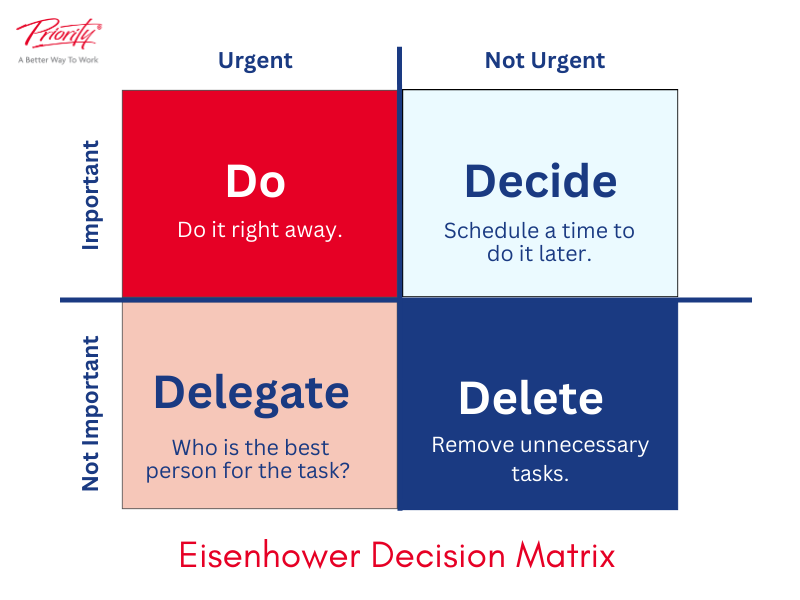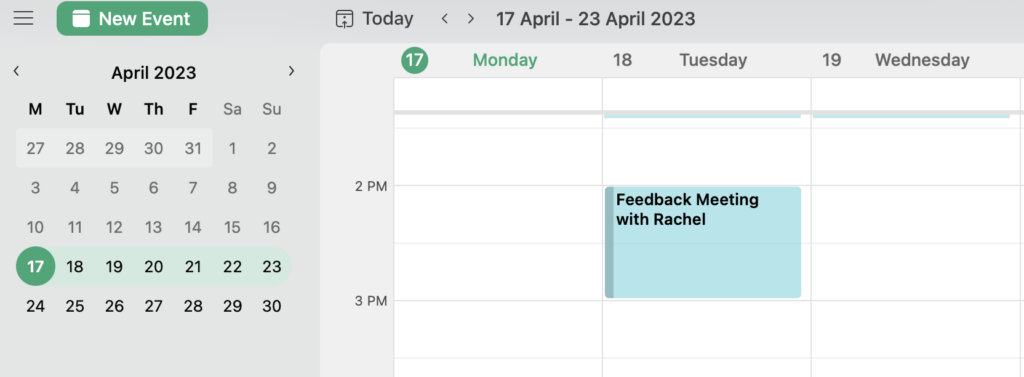Project management has become an integral part of any successful business. From teams of 10 to corporations with hundreds of employees across the globe, a project manager are essential to keep work under control, meet deadlines, and oversee the execution of projects. While project managers require professional training and certain technical skills (experience with organisational programs and the ability to effectively budget, for example), soft skills such as leadership are equally important for success.
In this article, we will list all the essential skills you need to be an effective leader and project manager. We will cover why these skills are so important, what could go wrong without them, and how you can improve your skills to become a powerful project manager.
9 Important skills required to be an effective project manager leader


Project managers are responsible for project planning, the results of the work, and the success of their team members. The role requires emotional intelligence, clear communication, and leadership skills to effectively lead your team to a high-quality outcome.
Here are 9 different leadership skills that are critical for successful project leadership.
- Communication skills to effectively convey information and ideas to team members, stakeholders, and other key parties involved in the project.
- Problem-solving skills to anticipate and resolve issues that may arise during a project.
- Decision-making skills to make quick and effective decisions in the face of uncertainty or ambiguity.
- Organisational skills to plan, prioritise, and manage multiple tasks and responsibilities.
- Time-management skills to effectively manage project timelines and deadlines.
- Negotiation skills to effectively manage stakeholders and resolve conflicts.
- Ability to inspire, motivate and lead the project team towards achieving the project’s objectives
- Meeting management skills to efficiently manage team meetings with clear objectives and lead with purpose.
- Emotional intelligence to understand and manage your own emotions, as well as the emotions of team members and stakeholders.
These are all important leadership skills for project managers to have. However, there are also hard, soft, and technical skills a project manager typically has as well.
Keep reading to learn more about these important project manager leadership skills.
1. Communication skills
Effective communication, both verbal and written, is a key component in project management leadership. Leaders will be in charge of several people, and everyone involved needs to be on the same page in terms of objectives, expectations, potential changes, and other factors.
Team members may have important questions regarding their role in the tasks ahead, and a project manager must clearly communicate the answers to ensure that the work meets expectations. When providing critical feedback, the team leader must communicate tactfully to provide ideas, solutions, and constructive criticism without alienating the employee and discouraging them.
Without strong communication skills, the project manager runs the risk of their planning being misinterpreted. If this were to happen, the team members would be spending precious time and resources on a task that they would have to completely scrap or rework. This would ultimately result in rushed work, potentially missing the deadline, and dissatisfied staff.
How to practice effective communication as a leader
- Practice delivering verbal and written communication with clarity, confidence, and conciseness.
- Strengthen professional relationships with your team members by discussing what they need before undertaking a task. Give them the knowledge they need to produce high-quality deliverables.
- Streamline communication with a single chat program for the entire team, such as Microsoft Teams or Slack. This keeps information organised and gives your employees clear expectations about where to find instructions and changes.
2. Problem solving skills
Successful project managers are able to identify potential problems and solve them before they have a significant impact on the project’s progress or outcome. They have a clear understanding of the project scope, the approved schedule, and any risks that can potentially arise.
Project managers have a responsibility to their team and their clients and/or stakeholders to ensure that things progress smoothly and the project goals are being met. Conflict resolution plays a major role in this, as your team members may have different ideas and approaches to the same end goal, or even disagreements that come down to personal characteristics. Project managers and their problem solving skills have a profound effect on the project outcome and the work culture within their business.
Without these essential skills, disagreements and problems won’t be solved efficiently, or may not be resolved at all. A project leader without the processes and methods in place for effective problem solving will see a decline in their team’s quality of work and quality of life. There needs to be a clear understanding of the project and everything involved, from the people to the resources, to the expectations and beyond.
Tips for effective problem solving
- Research different leadership styles and finding the type that works best for yourself and your team, along with your strengths and weaknesses.
- Perform regular risk assessments within your projects and recognise the importance of monitoring progress; the lack of knowledge of your project’s status is what will lead to last-minute issues and setbacks.
- Accountability is also essential, for yourself and your team members. Encourage a work culture that allows people to admit their mistakes, ask questions, and receive help without judgement. This will go a long way in creating a healthy work environment that avoids easily-preventable problems.
3. Decision making skills
Project leaders need to possess confidence in their decision-making abilities, as they are usually the person with the final say over project direction, scheduling, and resource allocation. They must make decisions with authority, and ensure that their input will lead to successful project outcomes.
Project managers and their actions will have a significant impact on every step of the project; delegation of tasks, allocation of resources, and the team-wide approach to achieving goals. They are responsible for creating and maintaining a productive project environment, so they must have confidence in their ability to make decisions with integrity.
Making the right decisions will set up team members for success in their part of the project, and ensure that things progress smoothly without second-guessing judgements and requiring multiple revisions. Situations may arise that require a final decision to be made before moving forward. The wrong decision has the potential to derail the project and even result in the late delivery of your team’s work.
Effective project managers requires strong decision-making skills
Any great leader must develop strong decision-making skills. It all starts with understanding the context of the situation at hand. Is your team in charge of launching new products or creating an in-depth presentation? Regardless of the project’s purpose, you need to understand the milestones and expectations that lie ahead. Make a plan and make decisions right away. For any decisions that can’t be made, take the time to research and collaborate with your team to find the best solution for everyone involved.
Use the Eisenhower Matrix for better decision making


An extremely useful tool for decision making is the Eisenhower Decision Matrix, which helps professionals prioritise their tasks based on their level of urgency and importance. Tasks are categorised into one of four quadrants (urgent and important, urgent but not important, important but not urgent, and neither urgent nor important).
This allows project managers to focus on the most critical tasks first, with less important or urgent tasks being rescheduled or delegated, respectively. The Eisenhower Matrix ensures that team leaders always have a plan for every known task, even if that plan is to be undertaken at a later date or by another team member.
The job of a team leader isn’t done the moment the project is submitted to clients or shown to stakeholders. A major part of decision-making comes from experience and analysis. Evaluate the previous project from ideation to completion; what could have been done better? What worked really well? Is there an opportunity in the next project to test new ideas or strategies? Reflect on your work and learn from your experience for stronger decision-making skills.
4. Organisational Skills
Project managers must be organised to effectively lead their team and meet project deadlines. Organisation is part of every step on the way to project completion; scheduling milestones and deadlines, allocating resources, creating budgets, and managing costs are just some examples.
Organisation means smoother processes for you and your team members. They will know where to find key information, updates, and resources. Their workload must also be organised for maximum efficiency and productivity. There are many moving parts to organise, but a successful project leader will provide clarity and strong task management.
If organisation is not a priority for team leaders, they may lose a lot of time playing catchup and making last-minute decisions that have a negative impact on their team and the project outcomes. Poor organisation can also result in wasted resources and funds, which may mean missing out on exciting opportunities and projects in the future.
Define your project’s scope to improve organisation
To improve your organisational skills, you should start defining the project’s scope as soon as possible. Identify what needs to be done, consult with others if necessary, and refer to proven strategies and methods for organisational success.
Between projects, team leaders should also develop an efficient filing system for easy access. Provide resources for project information and analysis, training exercises, and other methods for skill development. Your team will thrive in an organised environment, and so will your project outcomes.
5. Time management skills
All projects require a final deadline so that the work is done efficiently and delivered to clients or stakeholders on time. Therefore, project managers must have strong time management skills to effectively plan all aspects of the work ahead.
Meetings must be scheduled to ensure that all team members are on the same page. Milestones must be set in place with regular check-ins penciled in to measure progress. If tasks are correctly delegated amongst your team, work can be completed faster with higher-quality results.
If project managers do not prioritise time management as part of their duties, they run the risk of letting projects fall behind schedule and potentially missing deadlines. They may try to rush their team towards the end of the project timeline in an attempt to compensate for falling behind. Ultimately, this can lead to more mistakes and results that do not reflect the vision of the project.
Plan as early as possible to keep your project on track
![]()
![]()
Time management skills can be improved by beginning the planning process as early as possible. Map out all factors and milestones with adequate time for meetings, and don’t forget to plan for setbacks — extra time in your schedule can be the difference between finishing a project on time or missing the final deadline.
You can also implement different time management strategies for your team to use, like Pomodoro timers. Minimising distractions and interruptions will also ensure better productivity, so ensure that meetings happen before major work sessions and that your staff have all of the information, time, and resources that they need to get the job done.
6. Negotiation Skills
Project leaders must have strong negotiation skills to secure funding and resources, as well as resolve work-related conflicts. They need to negotiate with employees, clients, vendors, stakeholders, and other relevant parties who will directly impact the project’s outcome.
For example, a project manager may need to strategically negotiate with suppliers for the resources and tools necessary to finish the project. After negotiating with the suppliers, the project manager may recognise that there needs to be significant changes to the project timeline or vision to create a high-quality final outcome. In this case, the project manager must then negotiate with clients or stakeholders to find the best solution for all parties.
Without well-developed negotiation skills, project leaders may struggle to get the resources or funding required for the project. This may result in more pressure from clients or stakeholders, which places more stress on the project manager and their team. If the lack of resources and the increased stress result in a disappointing final product, it can reflect poorly on the business and the project manager.
Team leaders can also use their negotiation skills to garner support for change initiatives and get buy-ins. They may need to talk to high-level managers or stakeholders to gain support for team building activities or better technology and tools. Team members may also need to be convinced to take on projects and get on board with major structural changes. To successfully garner support, team leaders should formulate a clear vision, invite their team to provide ideas and feedback, and use that information to improve upon the vision.
Improve negotiation skills with training and practice


The best way to refine your negotiation skills is to undergo professional negotiation training. Practice is an integral part maintaining your skills, but development for strong negotiation abilities starts with training from an experienced negotiator and leader.
When practicing, work with coworkers, friends, or others to rehearse negotiation scenarios. If you have an upcoming meeting that requires negotiation, do your research and plead your case with a presentation or a simple yet powerful verbal pitch. Don’t forget to listen to the people you’re negotiating with to understand their perspectives, their objectives, and how you can reach an agreement.
7. Ability to inspire, motivate and lead
Project leaders must have the ability to gain the trust of their team, motivate them to work, and lead with authority while maintaining a healthy work environment. Inspiration and fulfilment are key parts of a thriving work culture, so use your influence to encourage these positive feelings for your team and lead with an optimistic attitude. For more information, Robert Cialdini’s book Influence: The Psychology of Persuasion discusses the power of influence and persuasion as a professional leader.
When teams have confidence and feel secure in their work, they will perform much better and produce deliverables of a much higher quality. Even through moments of frustration, team leaders will show great consideration for the people in their squad and their wellbeing.
If a project manager lacks the support and trust of their team, it can lead to low levels of motivation, engagement, and productivity. When leaders present a poor attitude, their employees are likely to reflect that same stance. “Fake it ’til you make it” very much applies here; a positive and motivational state of mind can be the difference between a happy team and a miserable work culture.
Motivate employees with one-on-one feedback meetings


Besides putting on a brave face and motivating your team with confidence, there are other ways to inspire and lead successfully. When time allows, schedule team meetings and one-on-one check-ins for feedback. This will give your individual employees a sense of importance and will show them that you care about them and their work-life balance.
Praise and compliments also go a long way in motivating your team, as does giving them the resources and time to develop their skills. When your employees believe in themselves and they believe in you and the business, they will produce amazing work. Project managers are nothing without their team, so keep up the motivation and positivity or it can reflect poorly on you and your role.
8. Meeting management
Meetings are an integral part of any project, providing a platform for communication, collaboration, and decision-making. Project managers need to learn how to effectively run meetings to ensure that the meetings are productive, efficient, and focused. Strong meeting management skills enable project managers to create a clear meeting agenda, set objectives and expectations, and keep meetings on track, on time, and on purpose.
Project managers need to facilitate effective meetings to ensure that everyone participates, that the discussion remains focused, and that the meeting achieves its set goals.
Important meeting facilitation skills
- Active listening
- Encouraging participation from attendees
- Asking engaging questions
- Managing conflict
This ensures that everyone has a chance to share their ideas, all while keeping the meeting focused.
Learn proper minute writing
Proper minute writing is also a critical skill. It helps to document and track the progress of a project, identify action items, and ensure that decisions made during meetings are documented accurately. Good minutes provide a record of what was discussed and what actions are required, making it easier to communicate expectations to the stakeholders and team members who were not present. This keeps everyone on the same page regarding project progress and goals.
By developing these meeting management skills, project managers can increase their effectiveness as leaders and improve the potential outcomes of the project. Professional meeting management training will give project managers a major advantage here, as poor habits will be replaced by productive and efficient ones for continuous success.
9. Emotional intelligence
All of the aforementioned skills require a high level of emotional intelligence. Some decisions take more than research or evidence — they require instinct and an understanding of human emotions to navigate. Project managers can experience a lot of pressure, and emotionally-intelligent skills such as self-regulation and motivation can be essential for moving forward.
Team leaders must demonstrate emotional intelligence in almost all aspects of their job; negotiating, developing professional relationships, making decisions, communicating changes, and solving conflicts all take self-awareness and insight for successful outcomes.
A lack of emotional intelligence can lead to poor conflict resolution skills, leading to delays or unsatisfied parties. This often leads to miscommunication. Effective communication requires a proper understanding of how your words influence people.
How to increase emotional intelligence
There are many ways to develop these skills, both with coworkers and in your own personal time. Feedback is one of the best ways to grow as a project manager, so take the time to check in with the people around you and understand your own strengths and weaknesses.
To increase your emotional intelligence, start by actively listening to the other professionals around you and really trying to understand their perspectives. Communicate with them in a way that prioritises clarity without sacrificing empathy or positivity.
These skills can be developed in everyday conversations and situations, and they can even have a positive impact on your personal relationships and problem-solving abilities. Communication is key, as they say, so continue talking with your team and ask them directly what they would like to see from you as a project manager.
Any successful project must possess emotional intelligence and soft skills that facilitate a happy, healthy, and productive work culture. All of these skills are interwoven with each other in some way, and none of them can be neglected without negatively impacting the progress of any projects at hand.
Priority Management has many resources and project management courses that teach professionals how to become successful project managers. Additionally, the Project Management Institute also has an online library with vast resources for effective leadership and project management.
When you dedicate yourself to becoming a strong leader, you’ll be setting yourself up for long-term success in your career.
